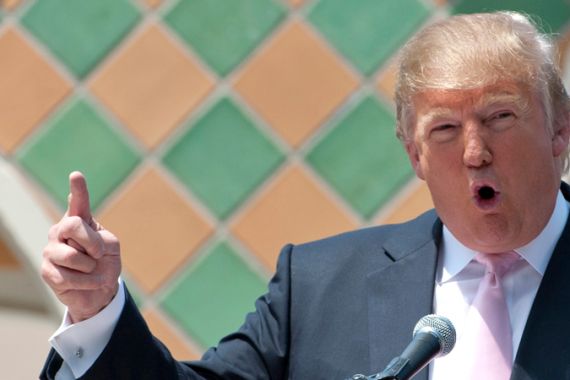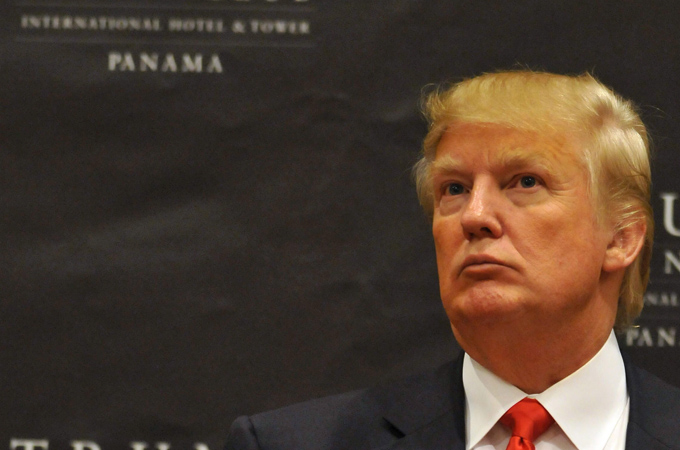The class warfare the rich don’t understand
The Masters of the Universe evaded responsibility and defiantly demanded more sacrifice from their victims, says author.

 |
| Taxes for the rich are at 35 per cent, the lowest ever in comparison to 1960, when it was 91 per cent [EPA] |
“Those who own the country ought to govern it.”
– Founding father, John Jay
There have been rumblings in the corners of the Tea party movement for some time, but the minute president Obama announced that he was going to ask wealthy Americans to kick in a small bit more in taxes to help pay for some infrastructure improvements in his jobs proposal, the Republicans have been clutching their pearls and gasping for breath like Aunt Pittypat awaiting the arrival of the marauding Yankees.
GOP leader Rush Limbaugh called for the smelling salts, saying “If [Obama] would get all of this actually passed, it would represent perhaps a fatal blow to the US private sector … I don’t know how anyone could even argue about the fact that this is on purpose anymore. To boldly lie that it’s not class warfare? It is class warfare. Specifically and purposefully class warfare.”
Republican economic guru Paul Ryan dolefully declared, “Class warfare may make for good politics, but it makes for rotten economics. We don’t need a system that seeks to divide people. We don’t need a system that seeks to prey on people’s fear, envy, and anxiety.” Indeed. What could be more destructive to the average American than to ask the upper one per cent to kick in what amounts to tip money? The guilt they will feel at such unfairness is bound to create a profound spiritual crisis throughout the land.
A false hope
One would have thought that in 2011, the term “class warfare” would be as out of fashion as Nehru jackets, but after watching the Republicans spend the first two years of Obama’s presidency apoplectic over what they defined as hard core socialism put in practice, it stands to reason the old standard would make a comeback. No matter what you call it, rich people complaining about taxes is evergreen. It is also completely ridiculous.
The fact is that the mega-rich have been gobbling up a greater and greater share of the national wealth for several decades now: in 1976 the top 1 per cent of households received 8.9 per cent of all pre-tax income – by 2008, its share had more than doubled to 21.0 per cent. Between 1979 and 2009, the top 5 per cent of American families saw their real incomes increase 72.7 per cent, according to Census data. Over the same period, the lowest-income fifth saw a decrease in real income of 7.4 per cent (by contrast, the 1947-79 period all income groups saw similar income gains, with the lowest income group actually seeing the largest gains). And perhaps most astonishingly, the tax rate for the highest earners was 91 per cent in 1960, 70 per cent in 1980 and only 35 per cent today, the lowest ever with the exception of a couple of years in the late 80s and early 90s.
And it’s not as if these people have been suffering during this recession. Unlike the bottom 99 per cent, they’ve quite smartly recovered from the 2008 unpleasantness. For instance, according to a recent New York Times report, executive pay at 200 big US companies last year went up by an average 23 per cent over 2009 – the median executive salary was 10.8m USD. Meanwhile, the average American family’s household net worth declined 23 per cent between 2007 and 2009.
Considering this somewhat ostentatious disparity, one would think that those who are doing well would decide to lay low and quietly count their money so as not to draw undue attention to their good fortune. One might even have expected them to take up good works and be especially generous in order to deflect the anger and resentment that any sentient being could see might result from such blatant unfairness. But no. They have instead waged a public campaign of extravagant whining, complaining incessantly that they are being scapegoated for the nation’s economic ills and throwing tantrums at the mere suggestion that they might need to contribute a little bit more in taxes to make up for the carnage their bad bets left in their wake.
The mega-rich balk back
It started early on in the crisis, when Jake de Santis an executive for the bailed out too big to fail insurance company AIG took to the pages of the New York Times to complain that he was being treated unfairly and so was going to give his $750,000 annual bonus away and then quit his job. Evidently, he expected people to feel sorry for him.
Since then we have been treated to regular scoldings from the masters of the universe (for our own good, mind you.) JP Morgan Chase chairman Jamie Dimon famously declared, “When I hear the constant vilification of corporate America, I personally don’t understand it. I would ask a lot of our folks in government to stop doing it because I think it’s hurting our country”. Blackstone Group Chief Executive Officer Steven Schwarzman said, “Financial institutions will feel under siege and they will retreat. Their entire world is being shaken and they’re being attacked personally. We don’t need those financial institutions insecure.”
Just last month yet another anonymous finance executive sniffed to The Hill, “It’s not healthy for rich people to feel maligned.”
It’s only a matter of time before these poor victimised millionaires seek some sort of anti-discrimination protection.
|
“Few can believe that suffering, especially by others, is in vain. Anything disagreeable must have beneficial economic effects.“ – JK Galbraith |
It’s easy to make light of all this – they are just that silly. But the truth is that in the age of Citizens United, these complaints carry a great deal of weight with both political parties. After all, as Willie Sutton said about banks: they are where the money is. The irony is that the more the politicians pander to these besieged plutocrats, the deeper the country’s problems become. Their bizarre insistence on austerity in the face of 10 per cent unemployment is making things worse for everyone, including themselves.
Martin Wolf the economics editor of the Financial Times, explained “premature fiscal tightening is, warns experience, as big a danger as delayed tightening would be. There are no certainties here. The world economy – or at least that of the advanced countries – remains disturbingly fragile. Only those who believe the economy is a morality play, in which those they deem wicked should suffer punishment, would enjoy that painful result.” Somehow, the Very Serious People have managed to turn the blame back on the people, insisting that it’s the average workers who have created America’s economic woes with their fat social security checks and extravagant old age medical care. Combined with their irresponsible willingness to take the mortgages the banks were begging them to take, it’s a strong indictment. So they must be taught a lesson – the debt shall be laid at their feet so that they will never again make the mistake of thinking that they are better than they ought to be.
Return of the protesters
The problem is that it’s not at all clear that the people are willing to be the sin-eaters in this crisis. Having just lost their nest eggs, still reeling from debt, unemployed or career stymied they aren’t anxious to sign on to austerity schemes that will make them even more insecure. Being required to do it on the orders of those who caused the problem in the first place – the same people who have recovered quite well and insist that they are far too valuable to waste their time paying for government – is not sitting well.
The polls show that large majorities believe the wealthy should pay more in taxes and that the social safety net should not be sacrificed on the altar of the deficit. They want the government to intervene to create jobs. Those sentiments have been stable throughout the crisis and yet the people’s wishes are ignored. As a result they are becoming more and more disillusioned with the system. And they are starting to take to the streets.
It’s too soon to know if the nascent Occupy Wall Street movement will grow or if it will have staying power. Who knows if the protesters will be able to endure the police responses or stave off the inevitable infighting. Perhaps it will break into sub groups or morph into something else entirely. But the focus on Wall Street alone should be enough to make the 1 per cent take pause and question their assumptions. When you have everyone from students to airline pilots looking to the same institutions as the source of their woes, it’s time to take a look in the mirror (or a position in pitchforks.)
Is this a class war? Yes, probably. And it’s one of those really long wars, the kind that goes on forever. But in this latest battle, there’s little doubt who fired the first shot. When the financial crisis hit, the Masters of the Universe evaded responsibility and defiantly demanded more sacrifice from their victims. They enlisted their favoured politicians to hold the people hostage and then complained about being unloved despite their crimes. They have won all the early skirmishes – but the people are gathering their forces and starting to fight back.
“The top 1 per cent have the best houses, the best educations, the best doctors, and the best lifestyles, but there is one thing that money doesn’t seem to have bought: an understanding that their fate is bound up with how the other 99 per cent live Throughout history, this is something that the top 1 per cent eventually do learn. Too Late.”
Joseph Stiglitz
Heather Digby Parton writes the liberal political blog Hullabaloo. You can read her blog here.
The views expressed in this article are the author’s own and do not necessarily reflect Al Jazeera’s editorial policy.
